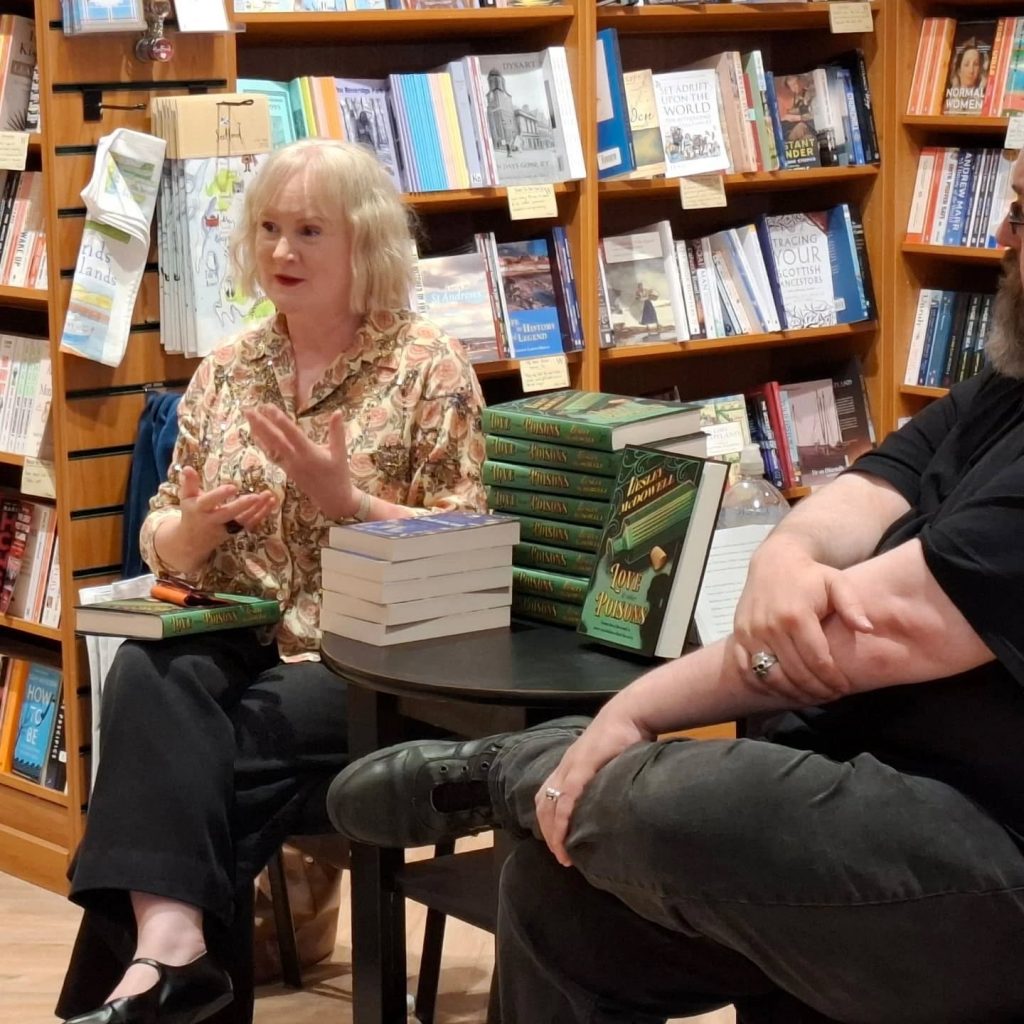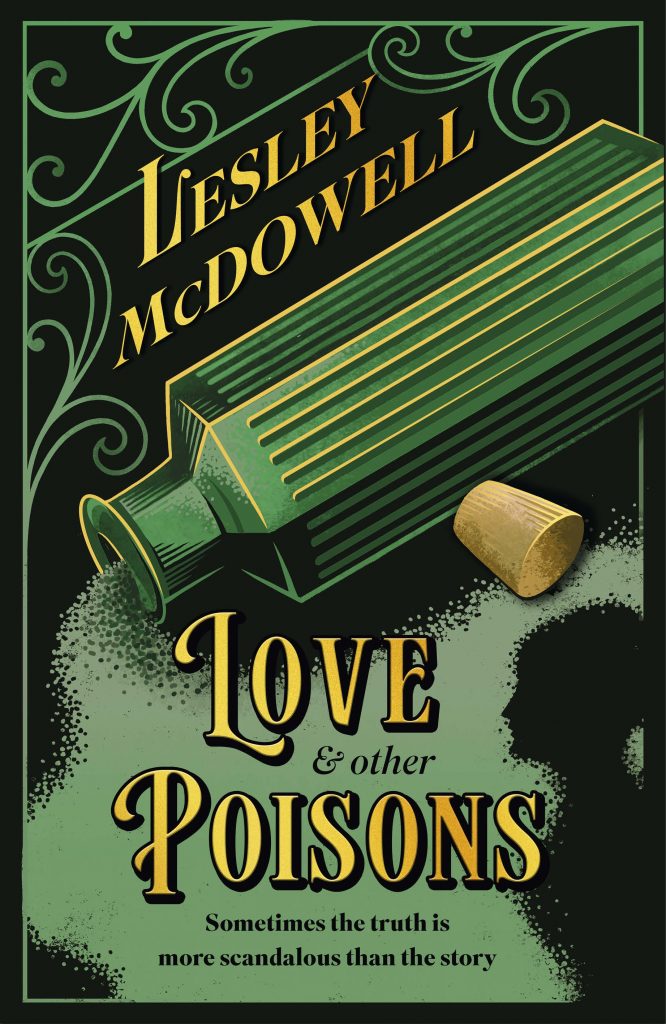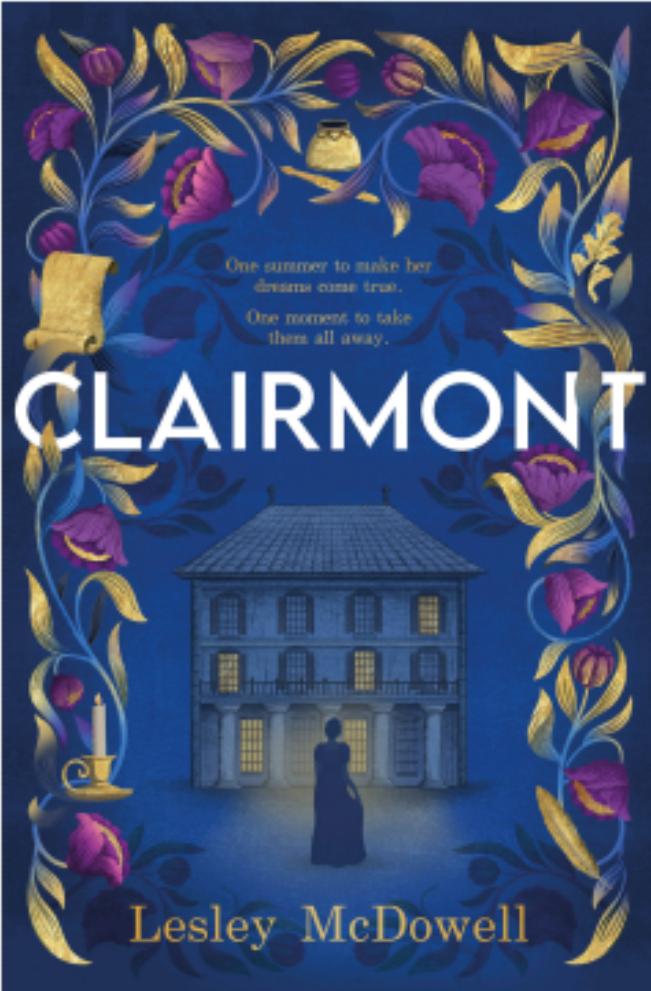
Like most writers, I could talk about my books until the cows come home. And at festivals and launch events, that’s exactly what I get to do.
But book groups are different, and as an author, I think that’s what makes them so appealing – I get to hear other people talking about my books, and find out what works for whom, and why; what plot twist gave the biggest surprise; which character was a favourite, and so on.
But if there are any questions, then I can also explain anything that readers are more curious about but that I’ve maybe only touched upon in my book – because historical fiction writers only get to include about a third of their research, we tend to grab any opportunity to mention that material we can’t use in the story (and believe me, there’s always A LOT), so that’s always a joy to do.
For me, the essence of the book group is the conversation that the book inspires – whether that’s disagreements, enthusiasms, queries, it doesn’t matter. It’s the conversation that counts. And if you would like me to be a part of that conversation at any point, and would like me to come to your book group in person and chat with you all about decisions I took for this novel, or characters I left out of that novel – whatever you like to ask – I will be there to answer questions and hopefully provide an extra insight into my writing process!
Whether your book group is based in a café, a bookshop, or a local library, drop me an email on Lesley_@_lesleymcdowellauthor.com and we can arrange an author visit either in person or by Zoom.
Below are book group questions on Love and Other Poisons and Clairmont which I hope will spark some discussion in your group! They are also available to download as PDFs so you can print them off should you wish!
LOVE AND OTHER POISONS Book Group Questions

- ‘Is she a Lucrezia Borgia, or is she only a boarding-school miss?’ asked one newspaper after the trial that found Madeleine Smith ‘not proven’ of the murder of her lover. What do you think of that question? Do you think the news report sums her up quite well? Or is it a typical ‘dual’ depiction of women that says they must be either all good, or all evil?
- What do you think attracted Madeleine to Emile? Why do you think she didn’t run away from him the first time he threatened her in the alleyway? What do you think attracted Emile to Madeleine? Was it just about her money?
- It’s the novel’s contention that Madeleine killed Emile out of fear for what he was going to do with her explicit letters. Do you think that is a strong enough reason? Do you think she killed him at all, or someone else did?
- The novels suggests a particular way that Madeleine killed Emile. Do you think that is a possible way to kill a man? Did it convince you, or do you think that, if she killed him, she must have used another method?
- Do you think the verdict of ‘Nor Proven’ was the correct one, and if not, why not?
- What do you think of Madeleine’s life after the trial? She married just four years later and went to live in London. Did you want to know more about her life amongst the Bloomsbury bohemian set? Why do you think she wasn’t on the 1891 census? Where do you think she might have been?
- Christina Haggart’s blackmail threats to Madeleine later in life are an invention by the author. In truth, we don’t know what happened to Christina after the trial. Why do you think that is? Do you think that a servant would have been judged more harshly if it was known she had been involved in the murder of Emile? Do you think a young Christina was afraid of being blamed at the time of the trial?
- What do you think of Madeleine’s younger sister, Janet? She was the only one who shared a bed with Madeleine. Do you think she knew more than she let on at the trial? And William Minnoch, Madeleine’s fiance, lived next door to her on Blythswood Square. Do you think he couldn’t have heard the rumours about her and Emile, before the night of the poisoning?
- Who do you think the woman in New York is? Do you think it really is Madeleine, as her family always claimed? What things might make you think it’s not her?
- Do you think an explanatory Author’s Note is helpful when a novel is about a true life case? Or do you think it spoils the mystery of the story?
- Do you think Madeleine ‘got away’ with murder?
CLAIRMONT Book Group Questions

- Claire once wrote that ‘I would willingly think that my memory may not be lost in oblivion as my life has been.’ She watched biographies and memoirs appear throughout her life, written about people she knew intimately. Why do you think she feared being forgotten about? Was it just because she was a woman? Was it because she had lived alongside people more famous than her? Or do you think the fact that she had to hide who she was when she was living in Russia meant she suppressed her own story too much? Was she the architect of her own silencing?
- Claire was Mary Shelley’s step-sister, after her mother married Mary’s father when Claire was only two years old. What do you think about the relationship between the two women as portrayed in the novel? How does it change over time? What kind of power dynamic exists between the two women, when one of them becomes famous, and the other has to hide who she is?
- Biographers still disagree over how intimate Claire’s relationship was with the poet, Shelley. What do you think is the truth of that relationship, as the novel shows it? Do you think Claire was right to trust Shelley’s advice about her daughter Allegra?
- Claire came to rue the day she became involved with Byron, and to handing their child over to his care. Do you think she could have kept Allegra after all? Some biographers think Claire should have taken a more submissive and polite attitude towards Byron after she placed Allegra with him – do you agree? Would that have yielded better results?
- Claire grew up in a ‘radical’ household, with the philosopher William Godwin as her step-father. Poets like Coleridge visited the family. Do you think she and Mary were an anomaly of the time, when they absconded to Europe with Shelley when they were only teenagers? Or were they just like Lydia Bennet in Pride and Prejudice? Do you think a lot of young women made rash decisions with their reputations, more than we probably know?
- Claire belongs to the era known as the ‘Romantic’ era, which valued Nature and Individualism. Shelley called poets ‘the unacknowledged legislators of the earth’. Does that era, which came before the Victorian era, seem more modern to you? Mary Shelley’s mother was Mary Wollstonecraft, the feminist pioneer, who wanted women to have an education and careers. How much did Claire take on this modern notion?
- At the end of the book, Claire seems to forgive Mary. Both women lost children. Do you think she really did forgive Mary in real life, given what they had both been through?
Further reading:
Mary Shelley Frankenstein
Mary Wollstonecraft A Vindication of the Rights of Women
Robert Gittings and Jo Manton Claire Clairmont and the Shelleys
Richard Holmes Shelley: The Pursuit
